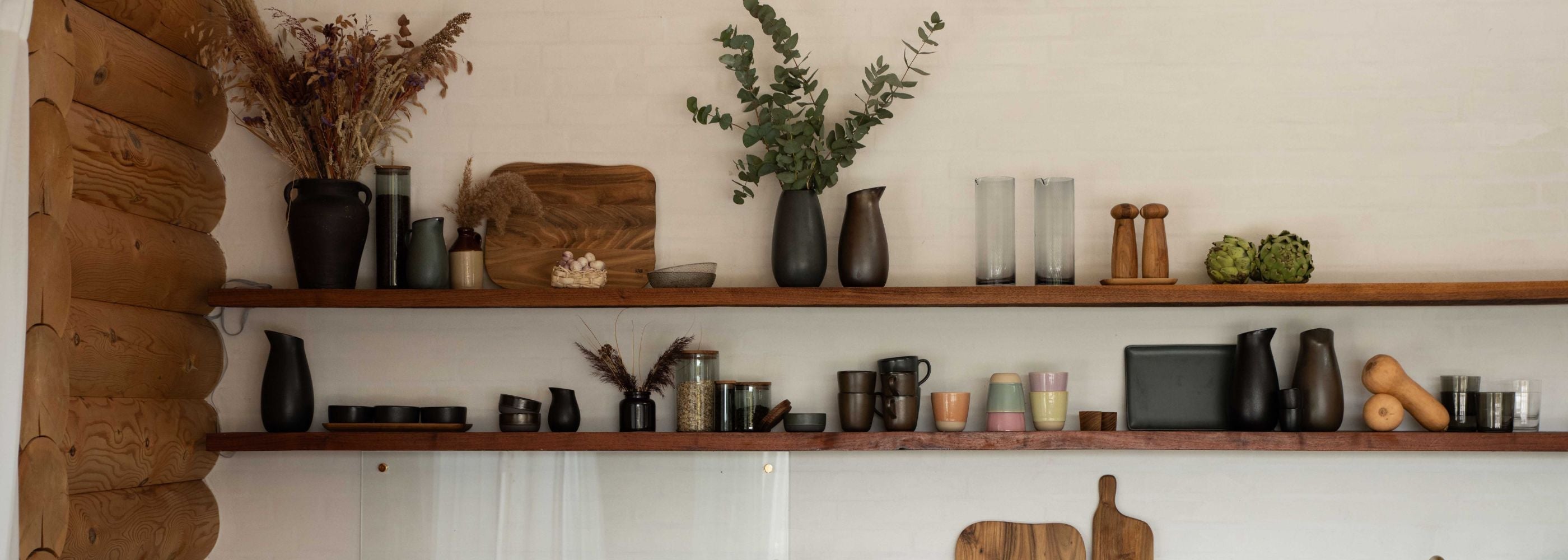Taking good care of your things is common sense. It extends the life of the product, which is good for both your finances and our shared nature and climate.
Follow our care guide and keep your things beautiful and usable for many years to come.
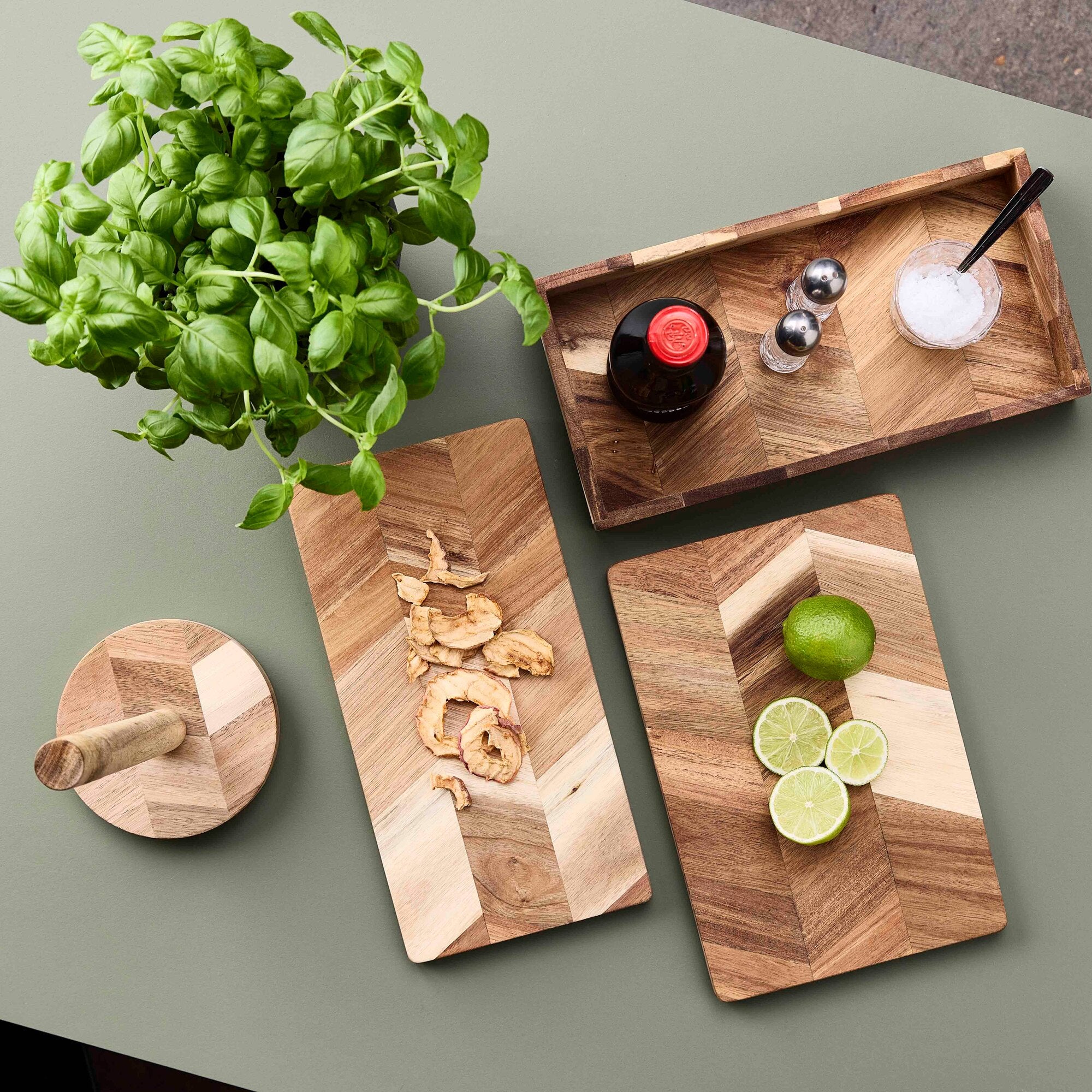
Acacia wood
Acacia wood is an extremely solid material and, if treated correctly, is almost impossible to wear out. Never put your cutting board or other wooden products in the dishwasher. Instead, wash it by hand, dry it thoroughly with a tea towel and let it air dry completely before putting it away.
To prevent the wood from drying out, it should be treated regularly with a suitable and food-approved oil. Bad odors are easily removed by sprinkling a spoonful of coarse salt over the cutting board, which is then rubbed with half a lemon and finally cleaned.
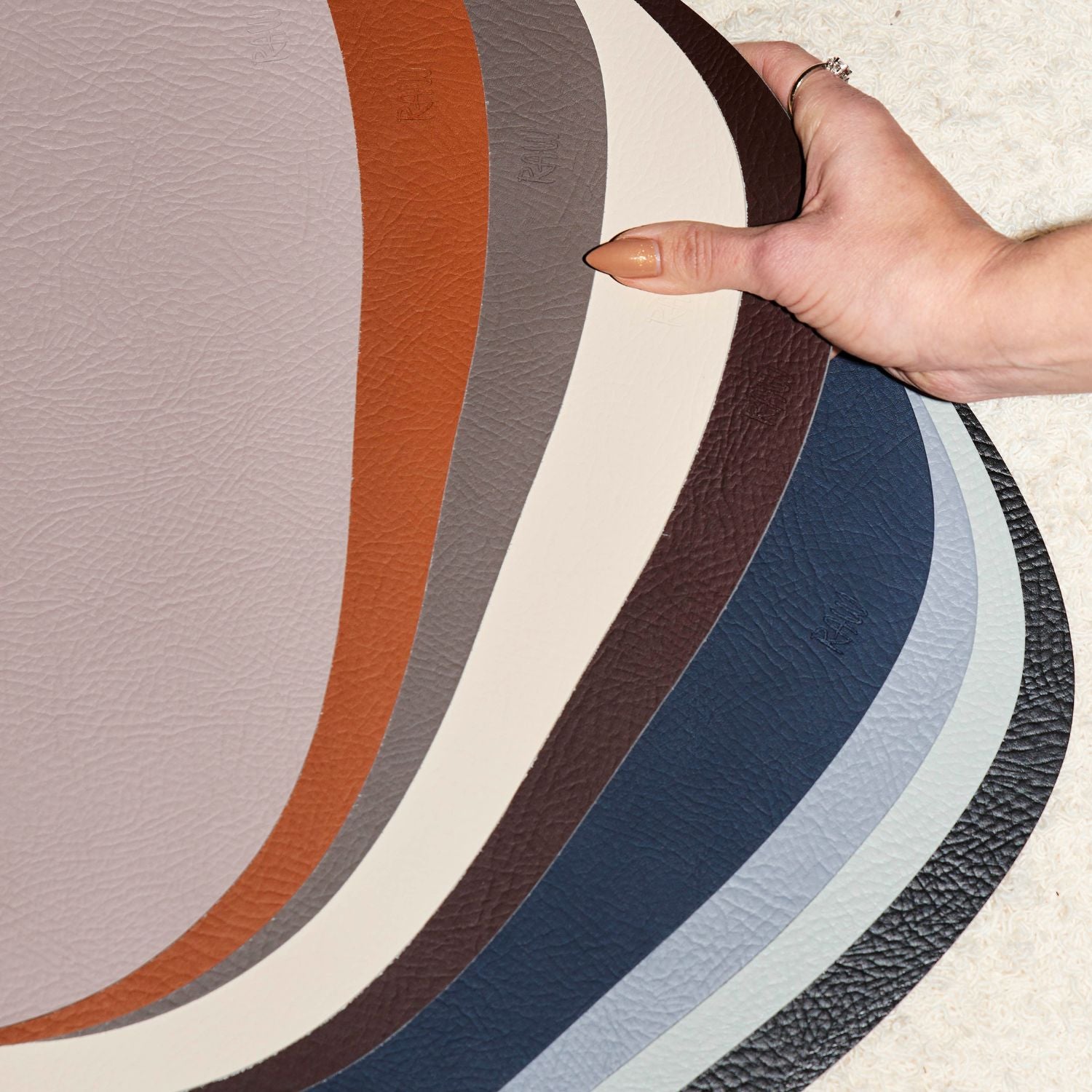
Placemats in recycled leather
Our recycled leather placemats are made from 95% recycled grain leather, which provides a beautiful dirt and water-repellent surface. However, it is still important to care for and treat the placemats correctly to avoid stains, rings, discoloration and other permanent damage.
Always make sure to remove spilled food and liquids immediately, as they can otherwise cause stains. The placemats should also always be cleaned after use, which is easy and quick to do with a damp cloth and a little mild dishwashing soap. You should never put the placemats in the dishwasher. Also avoid contact with hot elements such as pots and pans, folding and exposure to direct sunlight for a long time.
Occasionally, the placemats can be rolled the "opposite" way to ensure that they maintain a completely flat and level shape.
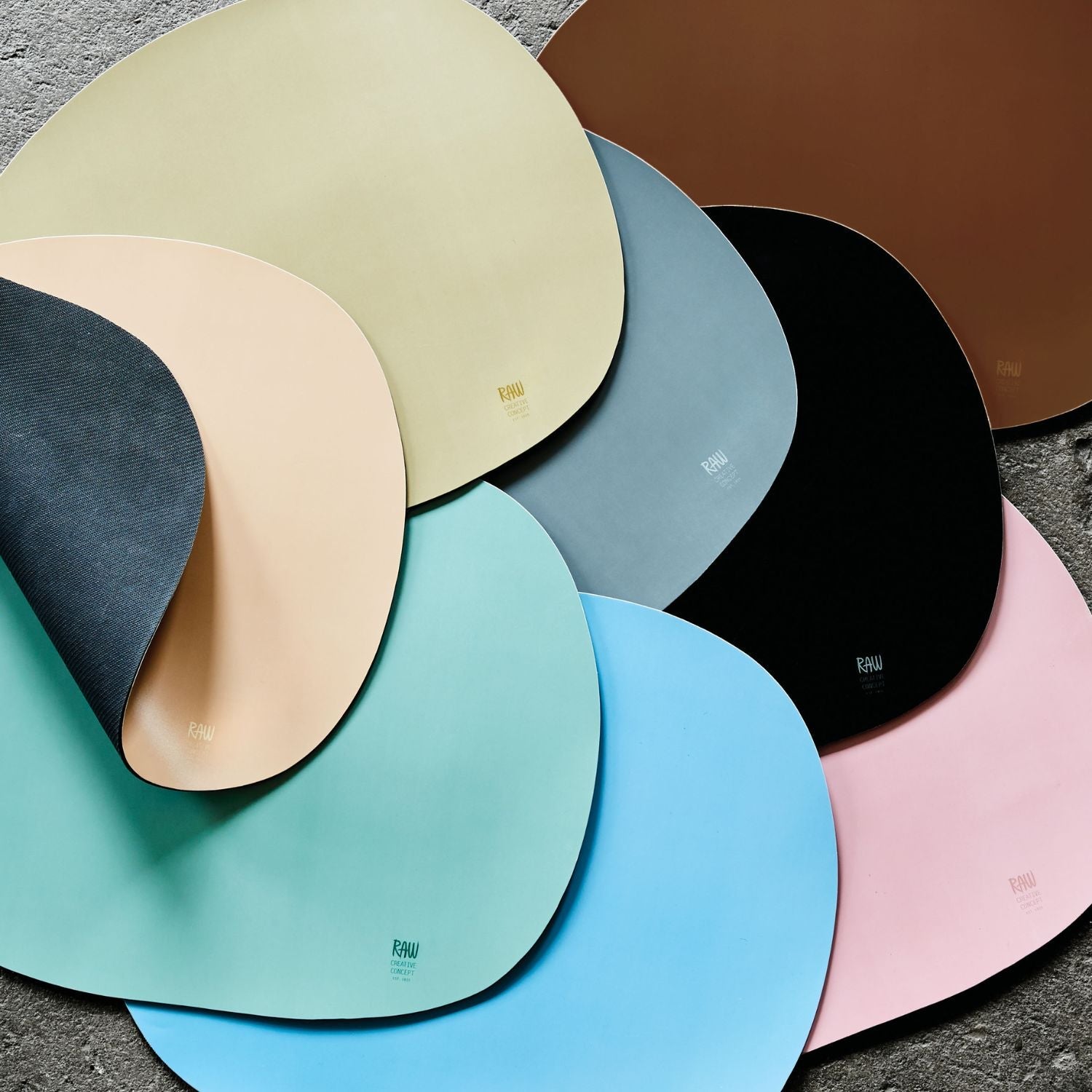
Silicone placemats
The silicone placemats have a surface made of PP plastic, which makes them very dirt and water-repellent and therefore incredibly easy to care for. However, there are a few precautions that are important to know to keep them neat and usable for many years to come.
Daily cleaning and care is easily done with a damp cloth and possibly a little mild dishwashing soap. You should never put the placemats in the dishwasher. Also avoid contact with hot elements such as pots and frying pans, folding and exposure to direct sunlight for a long time. In addition, the placemats should always be placed on a flat and dry surface and should always be stored lying flat to maintain a nice and even look.
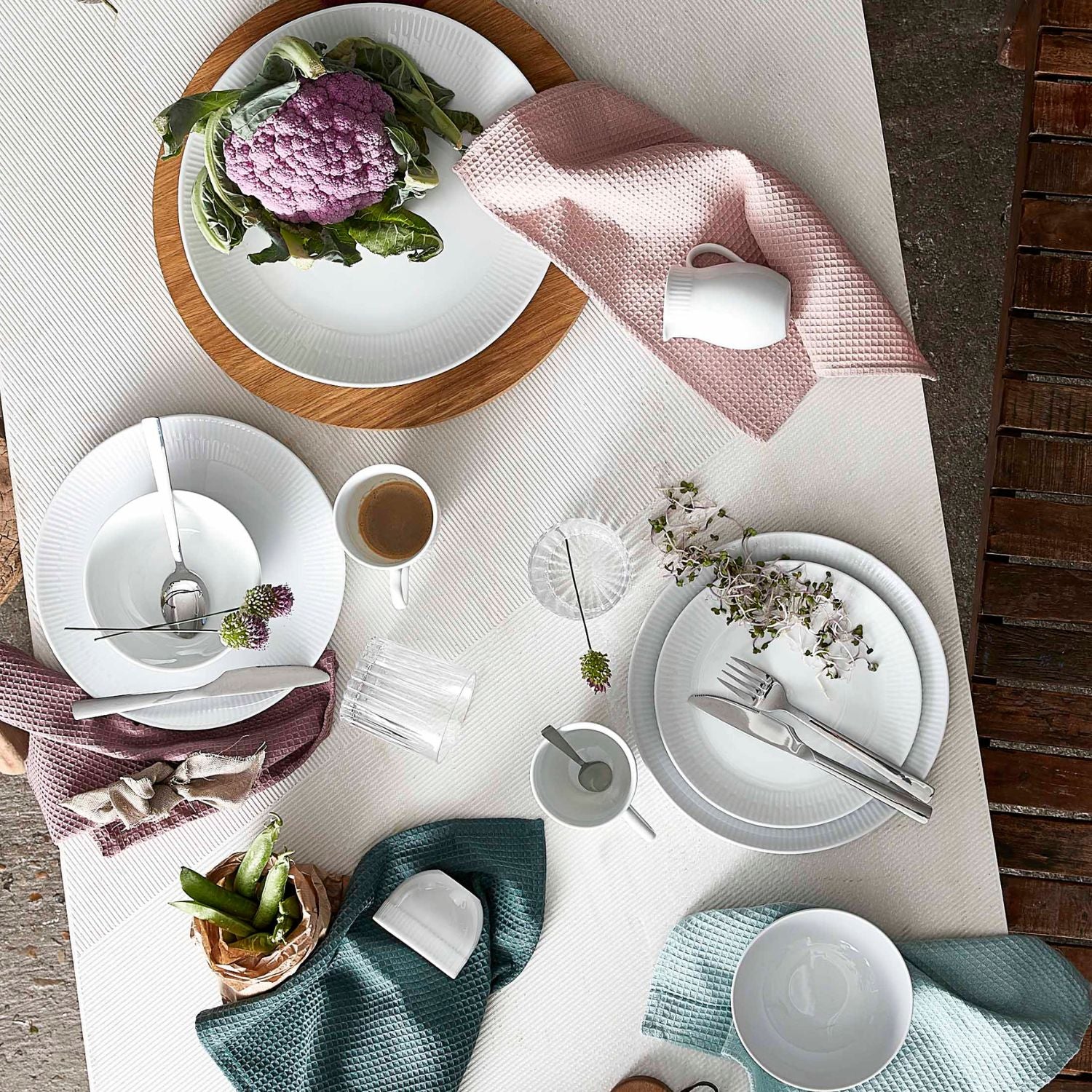
Stoneware
Stoneware is a robust material fired at high temperatures. The higher the temperature, the greater the strength and our stoneware is fired at very high temperatures above 1200° C.
As long as you follow certain precautions, our stoneware is dishwasher, microwave, oven and freezer safe. However, never put ordinary stoneware in a preheated oven, and also avoid placing hot stoneware directly on a cold countertop. Large temperature differences can cause stoneware to crack and break. It should therefore be heated carefully and cooled slowly.
Our stoneware is handmade and has a scratch-free glaze, but don't worry if your stoneware still shows signs of wear in the form of cutlery marks and small scratches. This is completely normal and can usually be removed with Viennese lime - always follow the instructions for use.
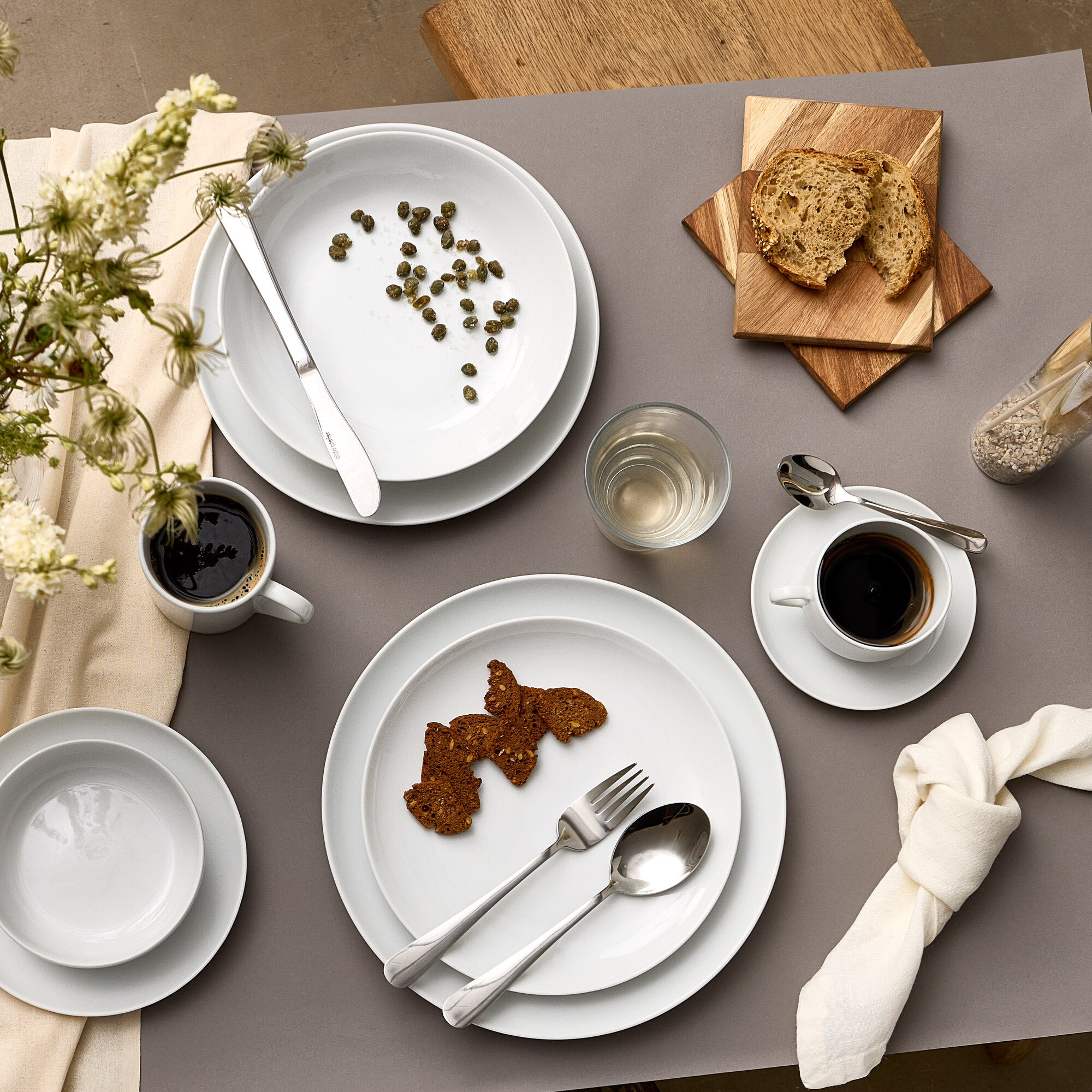
Porcelain
Porcelain is a robust material that is fired at high temperatures. The higher the temperatures, the stronger it becomes, and our porcelain is fired at very high temperatures of over 1200°C. As long as you take certain precautions, our porcelain is dishwasher, oven and microwave safe and can also be put in the freezer.
However, you should avoid putting the porcelain in a preheated oven or placing it directly from a hot oven onto a cool surface. Large temperature differences can cause it to crack or break, which is why it should always be heated and cooled gradually.
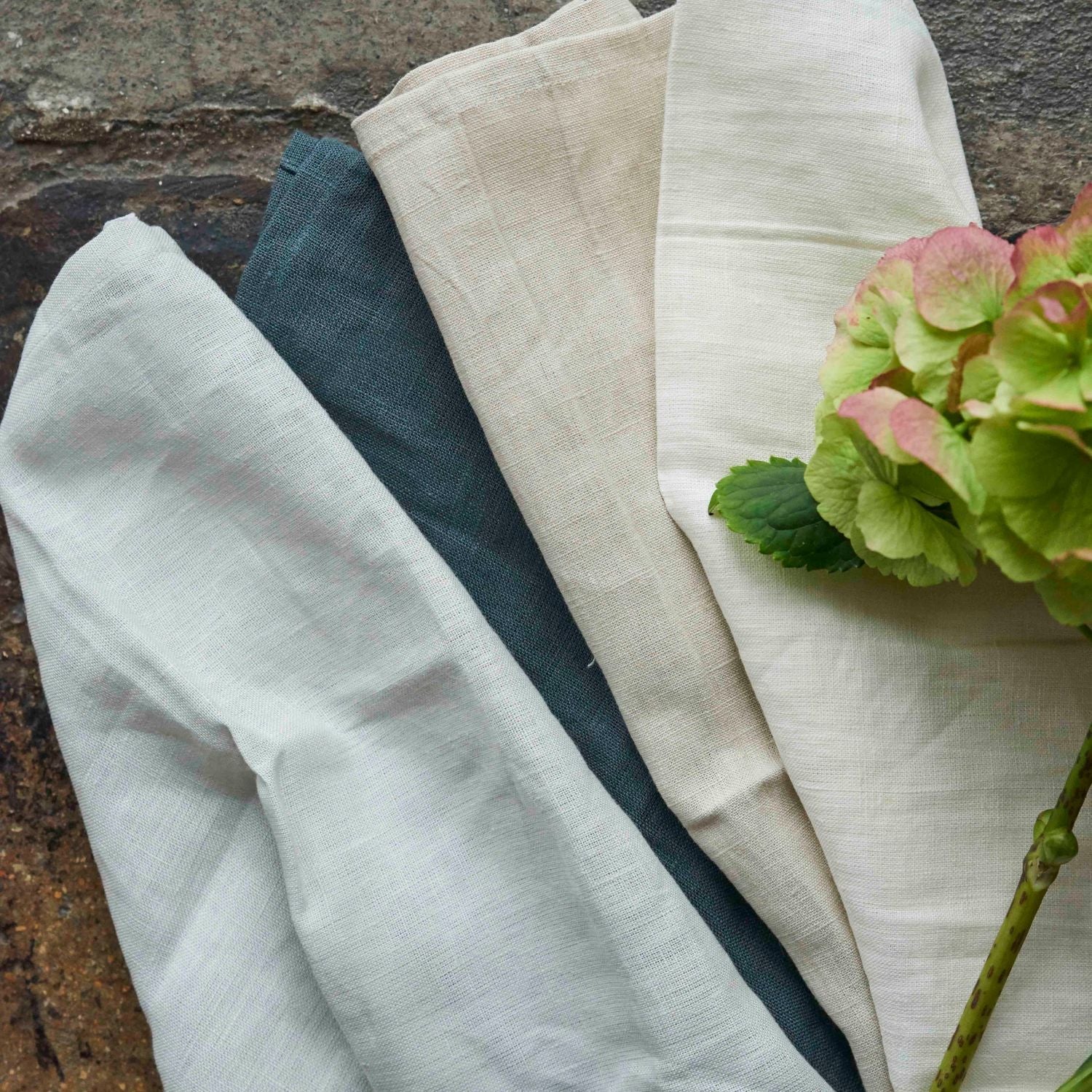
Linen
Linen is a fantastic natural material with some extremely hard-wearing and durable fibres and many good properties. Our linen textiles are made from 100% pure linen and are therefore of a very high quality. Pure linen has a unique ability to absorb moisture and at the same time dries faster than most other textiles. Linen also has a sought-after ability to hold its shape. With the right care, our linen textiles are almost impossible to wear out. Soak your new linen textiles for a day before the first wash.
Dyed linen is soaked in cold water, while naturally coloured linen is soaked in warm water. Wash linen at 60° C and always choose a gentle programme with a short and gentle spin and detergents without bleach and optical brighteners. Never put linen in the tumble dryer. Instead, smooth and stretch the textiles after washing and hang them to dry - avoid strong sunlight. The crinkled look is part of the charm of linen, and ironing and rolling should be avoided. If you do choose to iron or roll pure linen, it is best to do so at low heat before the textiles are completely dry.
Please note that pure linen can shrink 5-7%.
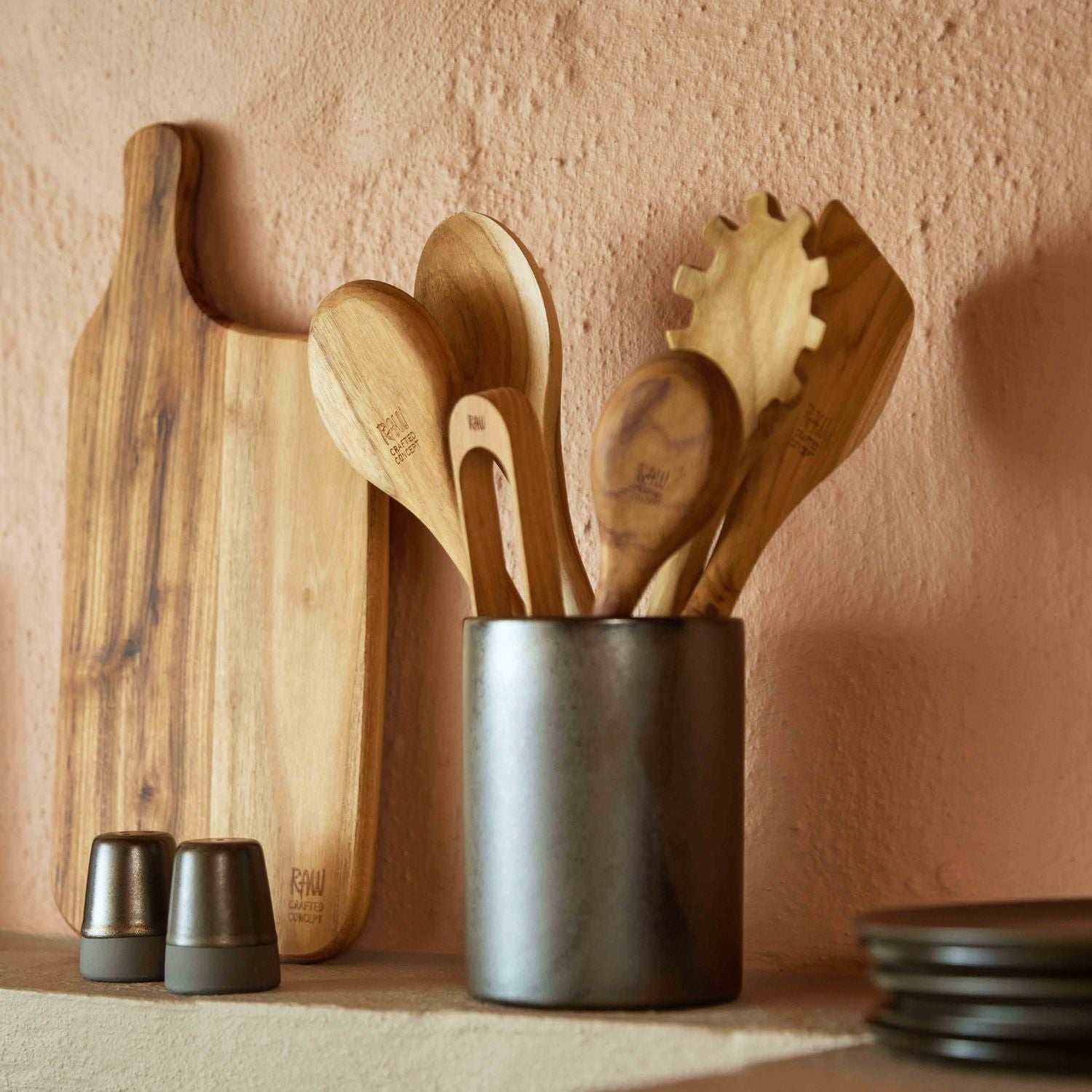
Teak wood
Teak is an extremely robust material, and the hard wood is almost indestructible if treated correctly.
Never put a cutting board or other wooden products in the dishwasher. Instead, wash it by hand, dry it thoroughly and let it air dry completely before putting it away.
To prevent drying out, the wood should be treated with oil regularly - always choose an oil that is suitable and approved for contact with food. Bad odors are easily removed by sprinkling a spoonful of coarse salt over the cutting board, which is then rubbed with half a lemon.
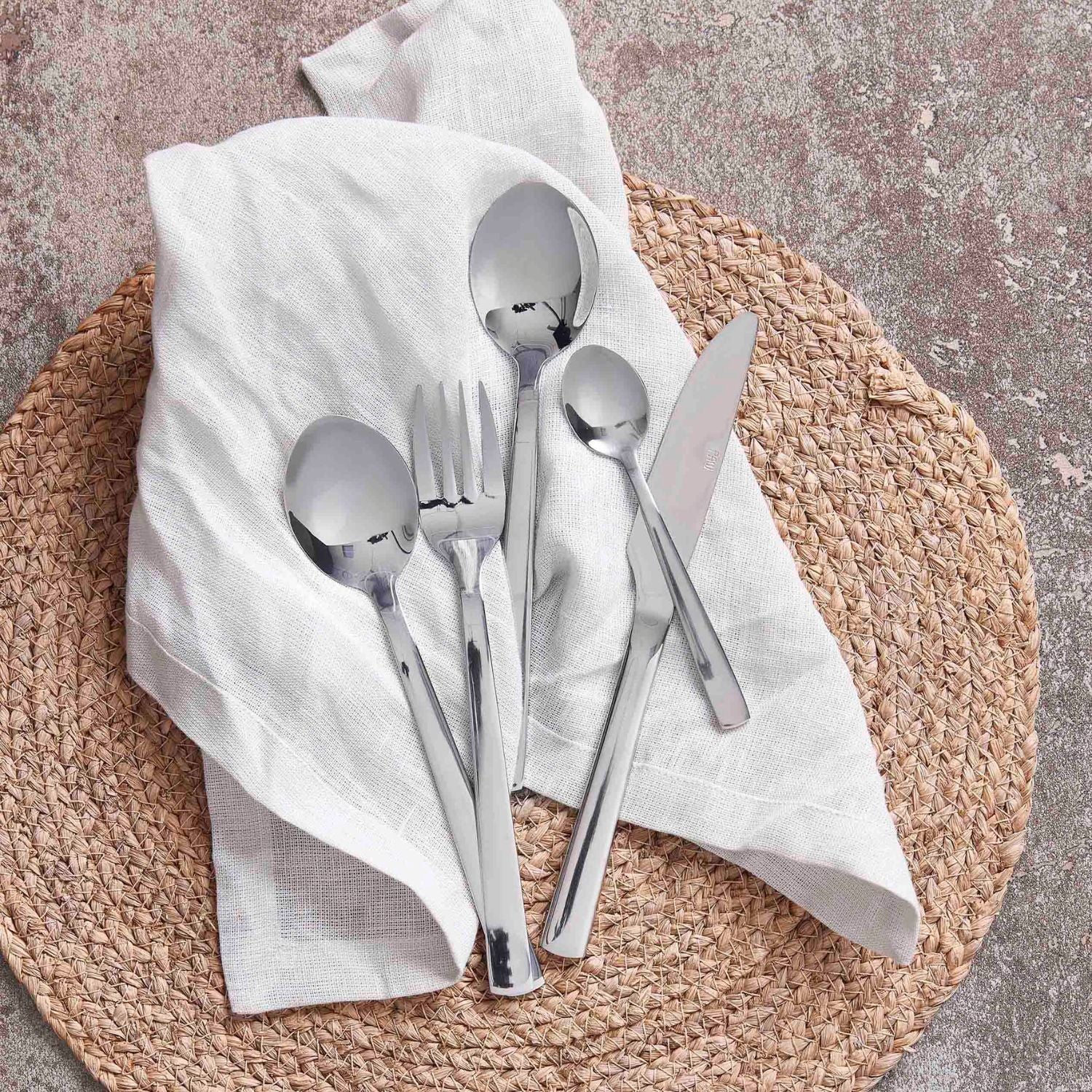
Stainless steel
In general, stainless steel is a very robust material that is easy to maintain. To keep your product beautiful for many years, we recommend that you rinse or wash it immediately after use, as acids from certain foods can cause damage. However, you should never leave it to soak.
Stainless steel should perhaps be called rust-resistant steel, as all steel alloys, including stainless steel, can rust if not treated correctly. On the other hand, if you treat your products as we recommend, they can last for many years and remain beautiful and completely rust-free.
Our stainless steel products are dishwasher safe, but we recommend using detergent and rinse aid from the same brand and ensuring correct dosage. The products must not contain chlorine, as this can discolour the products. Do not overfill the dishwasher, as the products need space to be washed and rinsed thoroughly. When the washing programme is finished, you should open the dishwasher to let the moisture escape.
It is also an advantage to dry the products after washing to preserve their appearance. To avoid the famous rust, you should regularly run a cleaning program on the dishwasher. In addition, you should avoid putting your stainless steel cutlery in the dishwasher together with steel affected by rust and you should regularly make sure that the plastic coating on the dishwasher's wire basket is intact, as otherwise the steel inside can easily rust and cause rust in the dishwasher.
Rust is tiny rust particles that swirl around in the machine during washing and settle on cutlery and other steel. When it comes to cutlery, you should be aware that knives should be placed separately in the dishwasher, as the knife blades are made of a type of steel that is less rust-resistant than the rest of the cutlery.
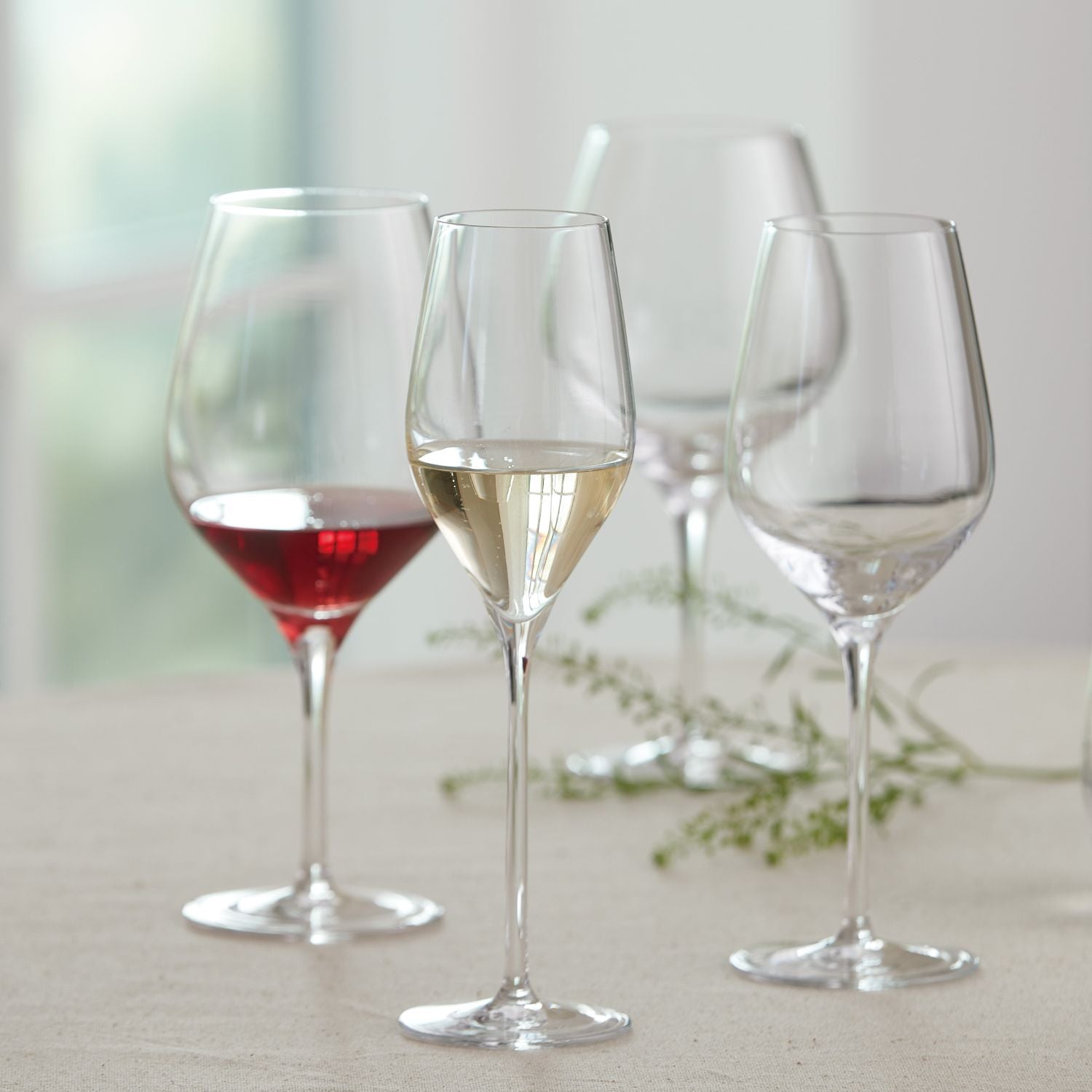
Crystal glass
Our crystal glasses are made in Germany from the highest quality lead-free crystal. They are produced in one piece for extra robustness, and as long as you follow our care guide and exercise common sense, they can remain beautiful and usable for many, many years.
The crystal glasses can withstand a trip in the dishwasher, but there are a number of precautions that are important to follow to minimize the risk of corrosion - also called glass plague. Corrosion is seen as a white coating on the glasses and can affect both expensive and cheap glasses, even glasses tested to be dishwasher safe.
Always make sure that the dishwasher is set correctly in relation to the hardness of the water, and dose the detergent, salt and rinse aid accordingly. Preferably only put glasses in the machine, and make sure that they are stable and with plenty of space between them. Always use the dishwasher's glass program or another short program with temperatures below 55° C. As soon as the wash is finished, open the door and remove the glasses and dry them thoroughly with a dry cloth.
Glasses should always be stored upright with the bottom facing down so that they can breathe. Also, be aware that a white coating is not necessarily caused by corrosion. It can also be caused by limescale, which can be removed with citric acid. In this case, put 50 grams of citric acid in the dishwasher's detergent dispenser and run a wash.
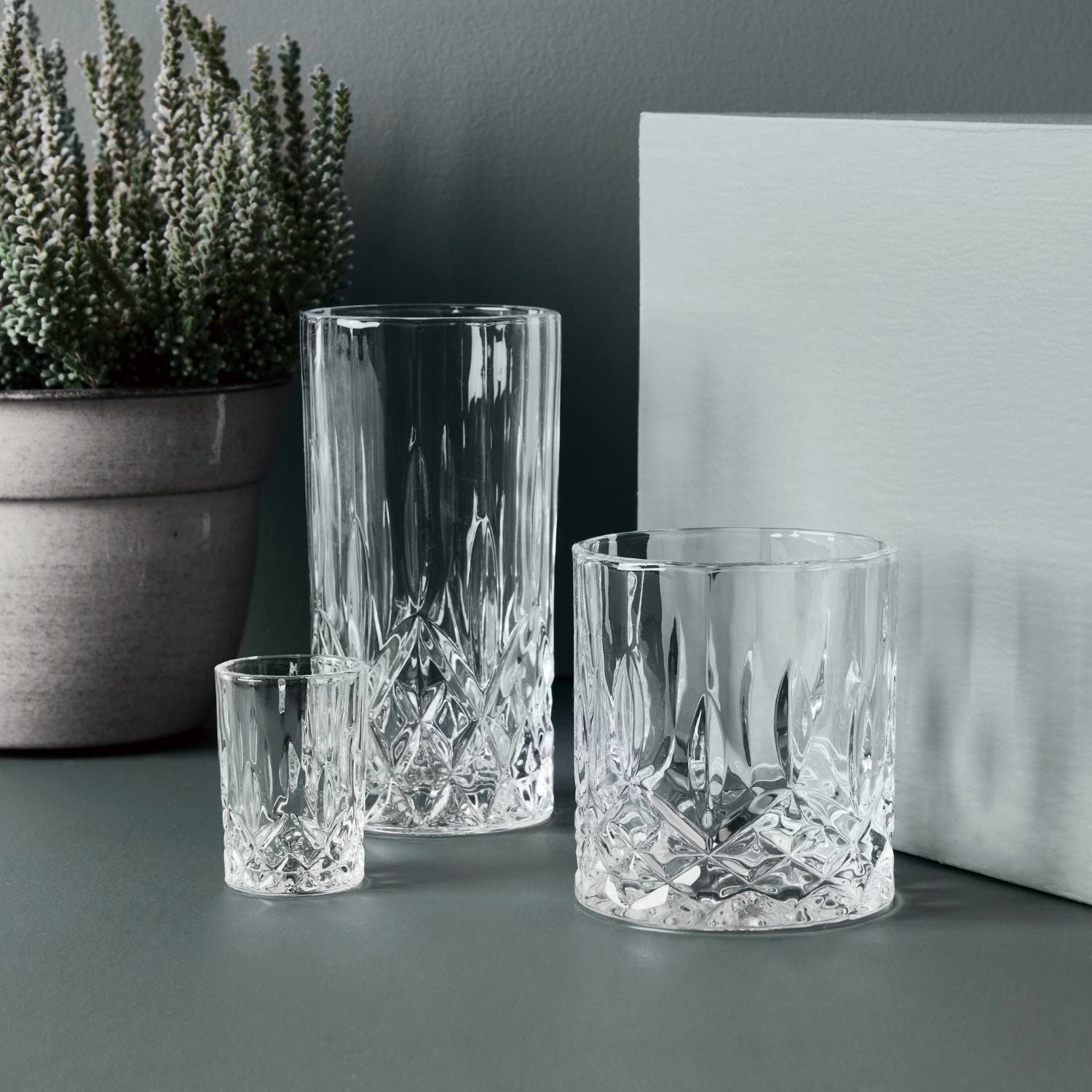
Soda glass
Our regular glasses are made of soda glass, which is easy to care for and maintain. Just follow our care guide - and be careful not to drop them - and they will stay beautiful and usable for many years to come.
The same precautions and guidelines apply here as with our crystal glasses. However, you can safely wash your soda glasses together with plates and cutlery, as long as you choose a short program and the temperature does not exceed 55° C.
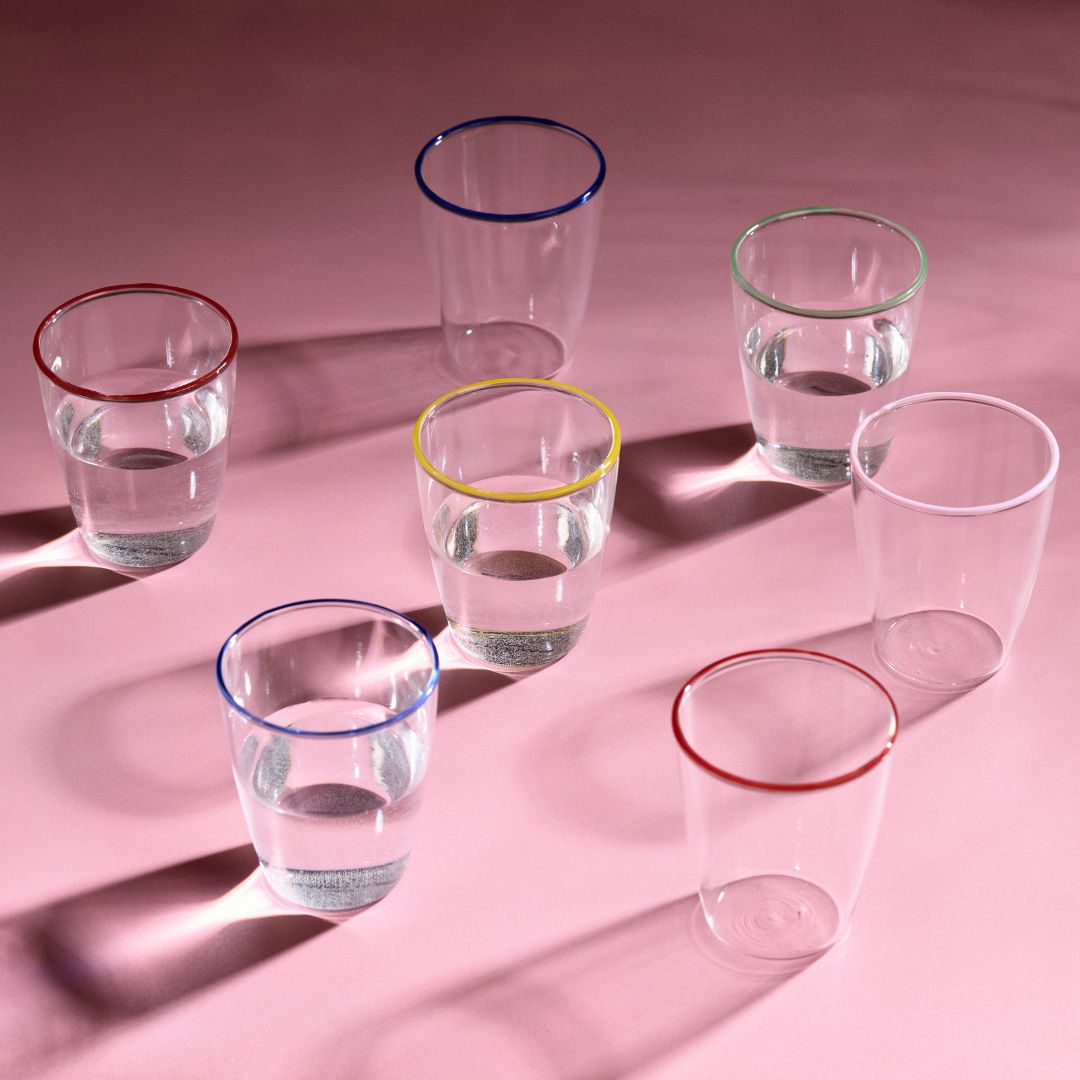
Borosilicate glass
Borosilicate glass stands out from other types of glass due to its impressive robustness. It can handle extremely high temperatures of up to 120°C and is remarkably resistant to thermal shock, meaning it can withstand both rapid heating and cooling without any problems.
Borosilicate glass is significantly harder than regular glass, making it very durable and much harder to break. It is designed to withstand stronger impacts and loads, but of course it is still glass, so if it is subjected to enough force, it can break.
Borosilicate glass also has the advantage that it does not change shape or become discolored over time. It is also extremely practical, as it can be washed in the dishwasher, is frost-resistant and can be used in the microwave without any problems.
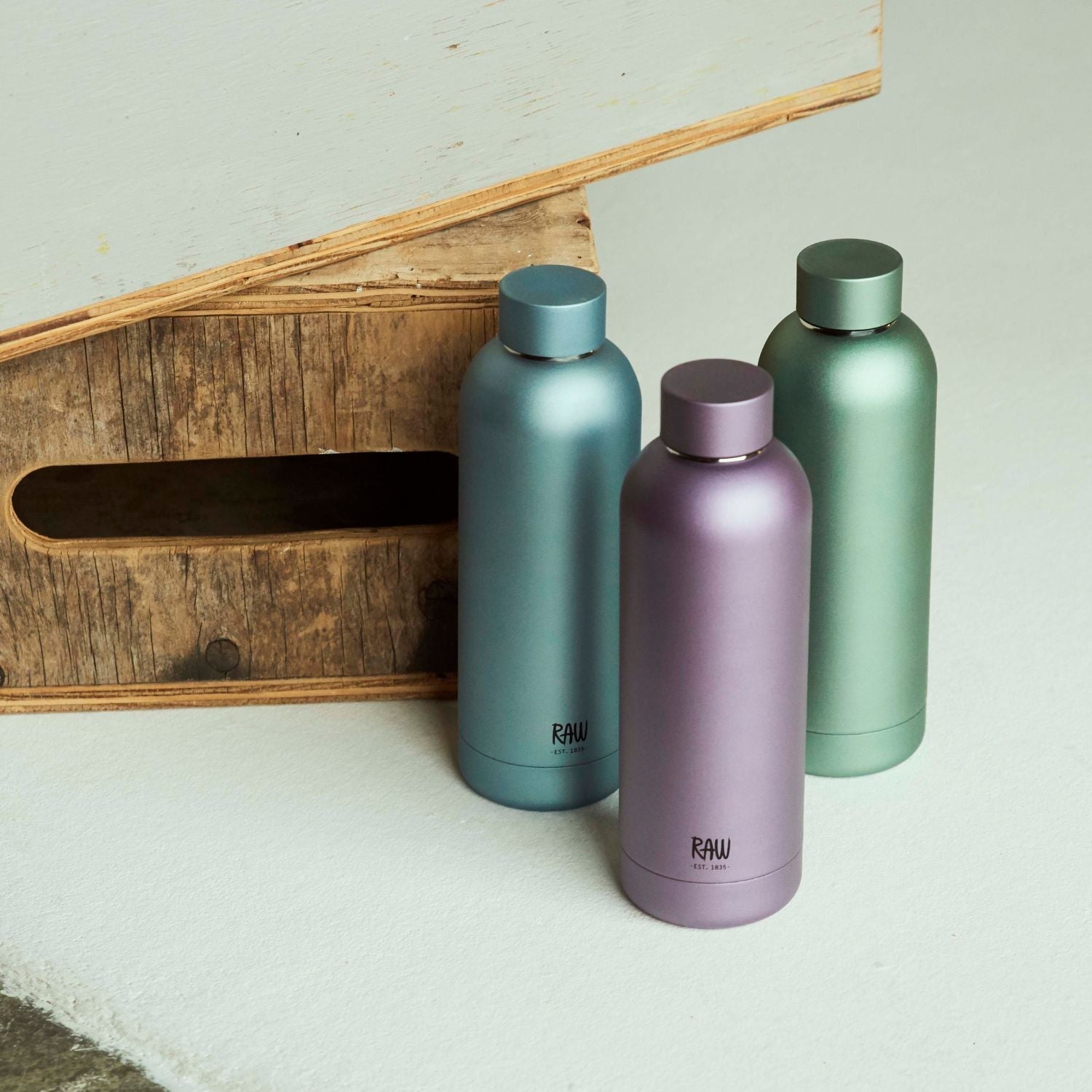
Thermos bottles
Our thermos bottles are hand-washable only. Do not use bleach or chlorine-based cleaners when cleaning and dry thoroughly before storing. Do not leave the bottle submerged in water for extended periods.
The thermos bottles should not be microwaved and are not suitable for carbonated drinks. Before use, all parts should be washed in warm soapy water.
Clean the lid in the open position. Rinse and dry thoroughly. Recommended for hot or cold drinks.
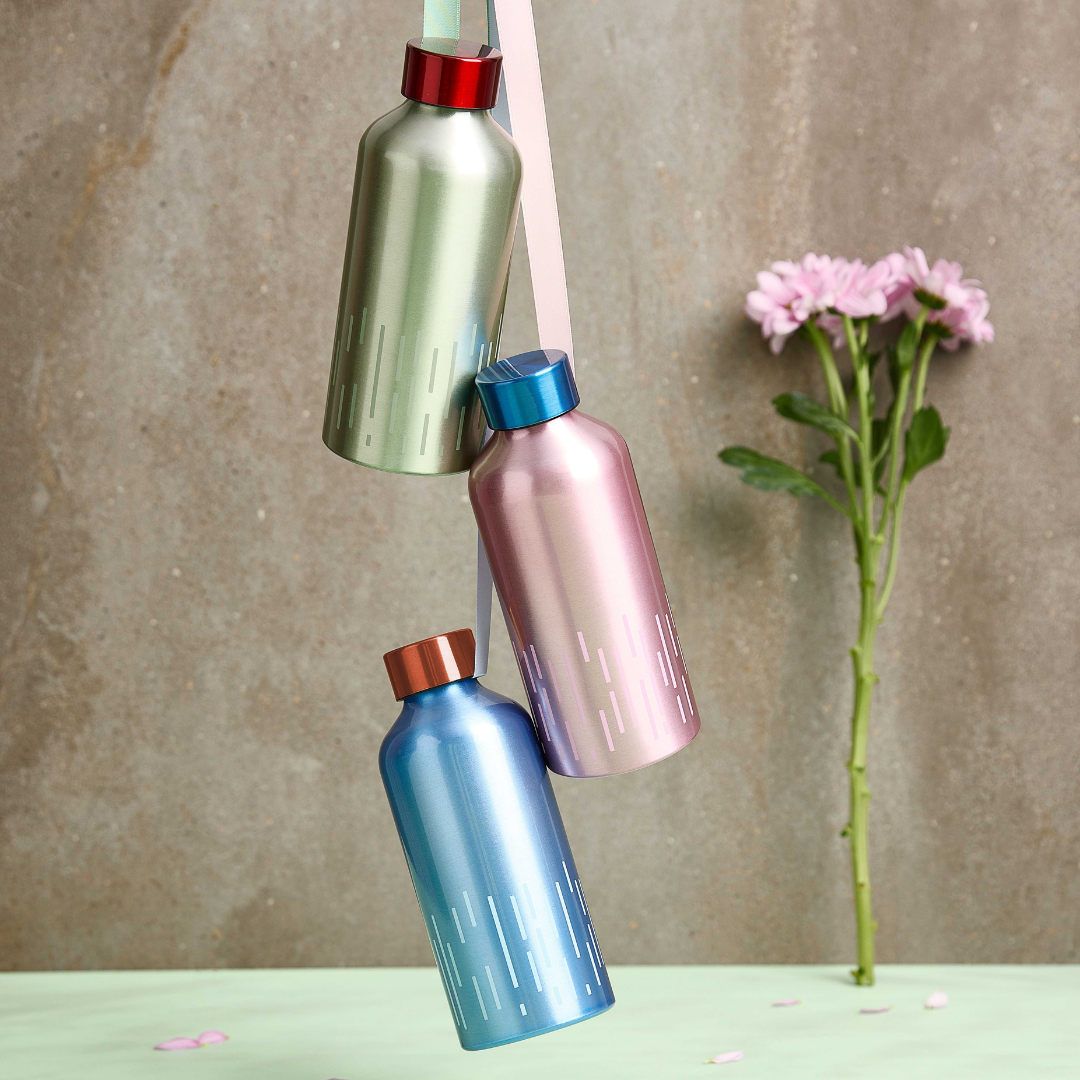
Aluminium bottles
Our alu to go bottles are made of aluminum, which makes them ideal for cold drinks. We do not recommend using the bottle for hot drinks, as the material gets hot and you can easily burn yourself.
Before use, you should clean both the bottle and the lid in warm soapy water. Make sure the bottle is completely dry. Before putting it away.
The bottle is dishwasher safe, but if you want it to retain its color and stylish look, you should hand wash it. The lid should always be hand washed.
